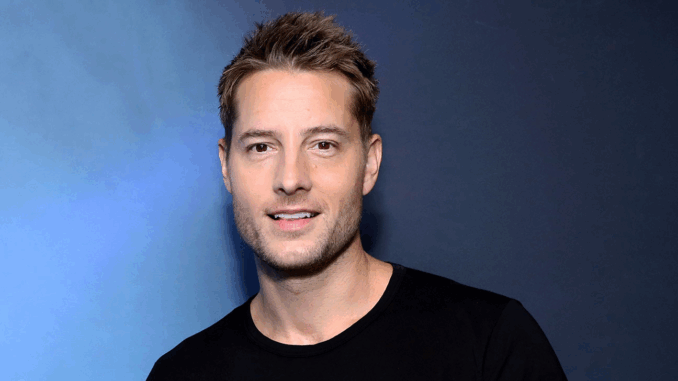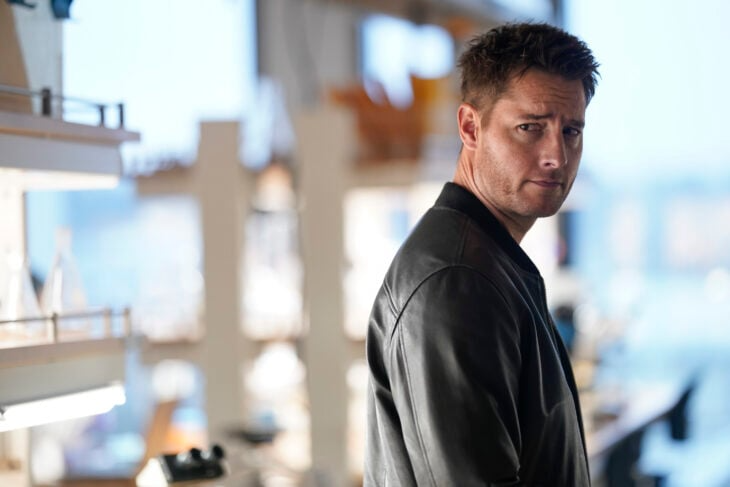
In an Age of Filters and Facades, Hartley’s Sincerity Sets Him Apart
In the crowded world of celebrity culture, where social media often amplifies ego and illusion, Justin Hartley stands out not because he is louder than the rest—but because he is more real. While many celebrities curate their public image like an algorithm-driven brand, Hartley has carved a distinct identity grounded in genuine engagement, humility, and emotional openness.
This unique approach has earned him not just critical respect, but also an unusually loyal and diverse fanbase. Whether responding candidly in interviews or interacting warmly with fans online, Hartley’s public persona is one of rare accessibility. In this age of curated perfection, it is precisely his imperfect humanity that keeps audiences watching, following, and caring.
A Quiet Rise to Public Visibility
Unlike many stars whose fame is launched through scandal, viral moments, or franchise blockbusters, Justin Hartley’s public recognition has grown organically—built over years of consistent work. From his soap opera beginnings on Passions to his national breakout on This Is Us, Hartley has become a household name by earning it.
This slow build has had a curious advantage: it has allowed the public to get to know Hartley in layers. He didn’t arrive as a fully formed icon. He grew into it, and fans felt like they were on that journey with him.
When This Is Us became a cultural phenomenon, Hartley found himself in the spotlight more than ever before. But instead of leaning into Hollywood gloss, he leaned into authenticity—talking openly about his upbringing, his emotional struggles, and his failures as much as his successes.
Social Media Presence: Calm, Warm, and Authentic

Hartley’s social media accounts—particularly on Instagram—are a reflection of his grounded public persona. Rather than flooding timelines with branded content, product endorsements, or overly staged photoshoots, Hartley posts candid behind-the-scenes moments, messages of gratitude, and personal snapshots of his life.
There are pictures with his daughter. Birthday posts for co-stars. Thoughtful tributes to crew members. And during the run of This Is Us, Hartley frequently used social media not to promote himself, but to highlight the show’s deeper emotional themes and celebrate the fans who connected with them.
His tone online is consistent: respectful, curious, and occasionally funny. He doesn’t tweet hot takes. He doesn’t perform virtue signaling. He communicates like someone who understands that fame is borrowed, not owned.
And fans have noticed. Many describe him as the “most grounded” or “least performative” celebrity in their feed. It’s no surprise that fan communities often refer to him affectionately as “Justin, not just Kevin.”
Navigating Vulnerability in the Public Eye
Hartley’s willingness to be emotionally open on screen carries over into his public presence. In interviews, he speaks without rehearsed talking points. He discusses therapy, parenting struggles, anxiety, and the complexity of fame with a refreshing lack of polish.
This vulnerability, far from weakening his image, strengthens it. In a culture often dominated by toxic masculinity and emotional suppression, Hartley presents a version of manhood that is thoughtful, expressive, and secure enough to admit uncertainty.
He doesn’t overexpose his private life, but he doesn’t pretend to be invincible either. When going through personal changes—like his divorce from actress Chrishell Stause—he handled the public speculation with grace and privacy. He never lashed out or sought pity, opting instead for respectful silence and a focus on his work and family.
This ability to balance transparency with boundaries is part of what makes him so respected, not only by fans but by peers across the industry.
A Different Kind of Fan Connection
Hartley’s fanbase is a unique cross-section of demographics: daytime drama loyalists, Smallville era comic fans, This Is Us viewers spanning generations, and now action lovers from Tracker. But what unites them is a common theme—they feel seen by him, not talked down to.
At conventions, meet-and-greets, and charity appearances, Hartley is known for making meaningful time for fans. He remembers faces. He listens to stories. And unlike many actors who treat fan interactions as transactional, Hartley engages with an obvious sincerity.
Numerous accounts have gone viral of Hartley going the extra mile—comforting grieving fans, signing autographs for veterans, and even quietly paying for meals when recognizing fans in public. But he doesn’t broadcast these moments. They spread because of witnesses, not publicists.
This authenticity creates emotional loyalty—a type of fan connection that isn’t built on hype, but trust.
Mentorship and Influence in the Industry
Beyond his fanbase, Hartley has also become a mentor to younger actors and colleagues. Co-stars on Tracker and This Is Us have described him as generous, supportive, and egoless. Sterling K. Brown once called him “the most emotionally available actor I’ve ever worked with.”
By setting this tone on set, Hartley contributes to a healthier, more respectful work environment—especially important in a post-#MeToo industry reckoning with its own toxic history.
Younger actors have begun citing Hartley as a role model, not just for his performances, but for the way he conducts himself. He’s not flashy, but he’s firm. He doesn’t demand attention—but he commands it with character.
Philanthropy Without Performance
While many celebrities attach their names to causes for brand value, Hartley’s involvement in charity work is less about visibility and more about consistency. He has supported cancer research, veterans’ assistance, mental health initiatives, and organizations supporting foster youth.
Notably, his philanthropic focus often mirrors the emotional themes of his acting roles—trauma, healing, family, and resilience. His charity work is an extension of the same core values he projects in public: empathy, advocacy, and grounded compassion.
Conclusion: The Fame We Need Now
In a celebrity culture that often feels either performatively “woke” or aggressively self-centered, Justin Hartley’s approach to fame is a welcome alternative. He’s not trying to be perfect, edgy, or untouchable. He’s trying to be present, sincere, and human.
And in doing so, he’s redefined what public connection can look like in the modern age—less about spectacle, and more about shared humanity.
Hartley isn’t just a good actor. He’s a model for what responsible, emotionally aware public life can look like.
And in a world where authenticity is increasingly rare, that may be his most powerful role yet.
